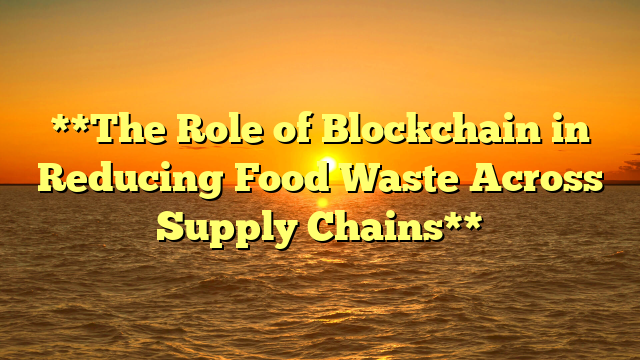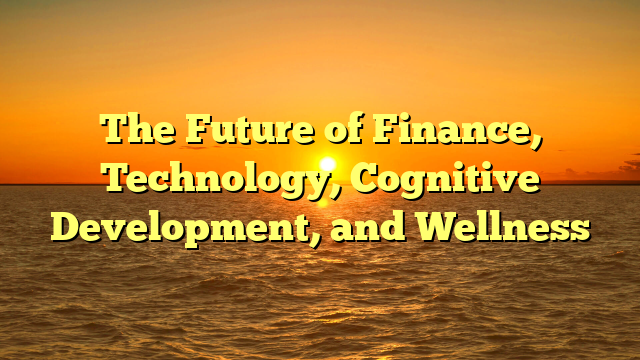
Food waste is a global challenge that affects every stage of the supply chain, from production and processing to distribution and consumption. One of the key factors contributing to this waste is inefficiency and lack of transparency in supply chain management. Enter blockchain technology—a revolutionary tool that is transforming industries by providing secure, transparent, and decentralized systems. In the fight against food waste, blockchain is emerging as a powerful solution to improve traceability, reduce inefficiencies, and ensure that food reaches its intended destination before it spoils.
At its core, blockchain is a digital ledger that records transactions in a secure and immutable manner. Each “block” in the chain contains data that is linked to the previous block, creating a transparent and tamper-proof record. This technology is particularly well-suited for supply chain management, where multiple stakeholders—farmers, processors, distributors, retailers, and consumers—need to share and verify information. By providing a single source of truth, blockchain enhances trust and collaboration across the supply chain.
One of the most significant ways blockchain reduces food waste is by improving traceability. In mpo slot , tracking the journey of food products from farm to table can be challenging due to fragmented and opaque systems. Blockchain enables real-time tracking of food items, recording details such as origin, harvest date, storage conditions, and transportation history. This level of transparency allows stakeholders to identify and address inefficiencies, such as delays or improper storage, that can lead to spoilage. For example, if a shipment of produce is exposed to unfavorable temperatures during transit, blockchain data can pinpoint the issue and help prevent similar problems in the future.
Blockchain also enhances inventory management, a critical factor in reducing food waste. By providing accurate and up-to-date information on stock levels, expiration dates, and demand forecasts, blockchain helps businesses optimize their inventory and reduce overstocking. Retailers can use this data to implement dynamic pricing strategies, offering discounts on items nearing their expiration dates to encourage sales and minimize waste. Similarly, restaurants and food service providers can adjust their menus and portion sizes based on real-time supply chain data, ensuring that they prepare only what is needed.
Another key benefit of blockchain is its ability to facilitate food redistribution. Surplus food often goes to waste because there is no efficient way to connect donors with recipients. Blockchain platforms can streamline this process by creating a decentralized network where businesses, food banks, and charities can share information about available surplus food. Smart contracts—self-executing agreements coded into the blockchain—can automate the redistribution process, ensuring that surplus food is quickly and efficiently redirected to those in need. This not only reduces waste but also helps address food insecurity in local communities.
Blockchain also promotes accountability and sustainability in the food industry. By providing a transparent record of every transaction, it enables consumers to make informed choices about the products they buy. For instance, blockchain can verify whether a product is organic, fair-trade, or sustainably sourced, empowering consumers to support ethical and environmentally friendly practices. This increased transparency can drive demand for sustainable products, encouraging businesses to adopt more responsible practices throughout the supply chain.
Despite its potential, the adoption of blockchain in the food industry faces challenges, including high implementation costs, technical complexity, and the need for industry-wide collaboration. However, as the technology matures and becomes more accessible, these barriers are likely to diminish. Governments and industry stakeholders can play a crucial role by supporting pilot projects, establishing standards, and providing incentives for blockchain adoption.
In conclusion, blockchain technology holds immense promise for reducing food waste across supply chains. By improving traceability, enhancing inventory management, facilitating food redistribution, and promoting sustainability, it offers a comprehensive solution to one of the most pressing challenges of our time. As the food industry embraces blockchain, we can move closer to a future where food waste is minimized, resources are used efficiently, and everyone has access to the food they need. The integration of blockchain into supply chains is not just a technological advancement—it’s a step toward a more sustainable and equitable food system.





